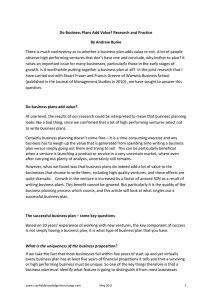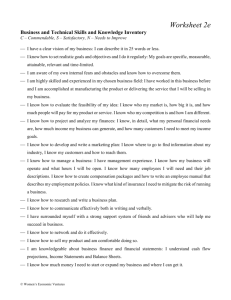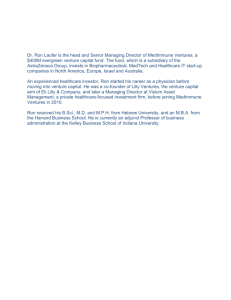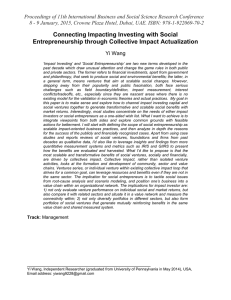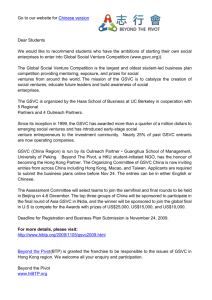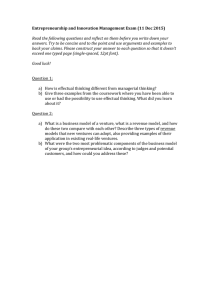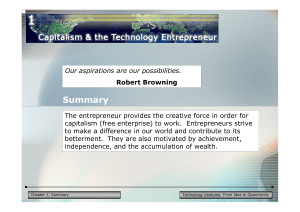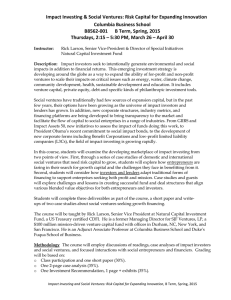Do Business Plans Add Value? Research and Practice
advertisement
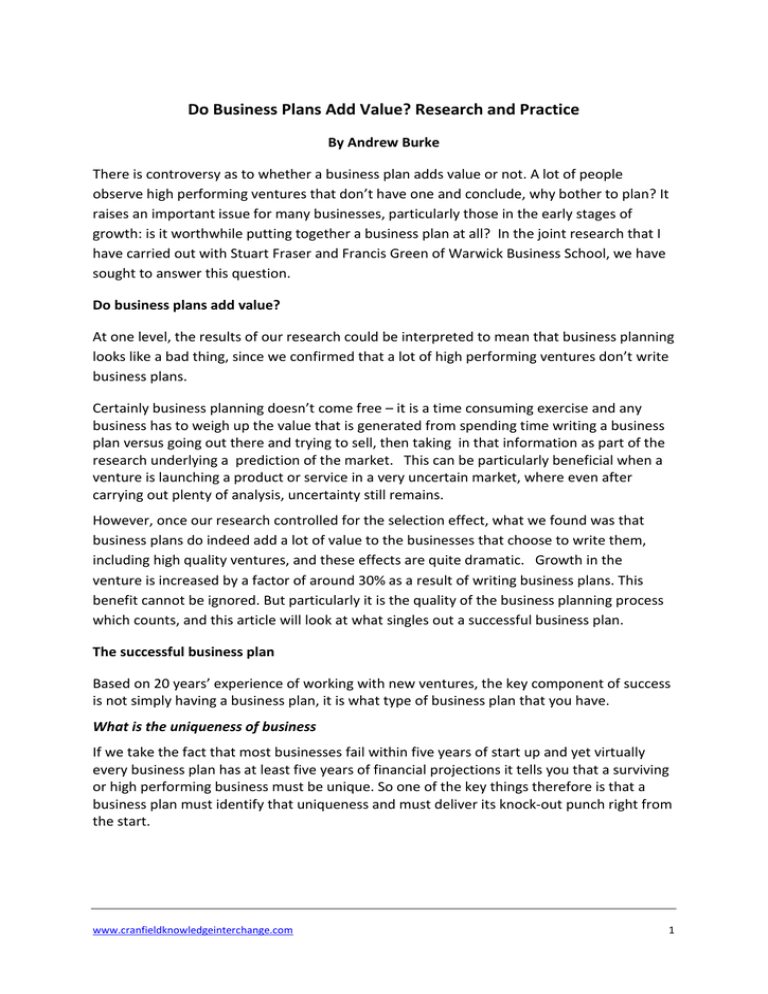
Do Business Plans Add Value? Research and Practice By Andrew Burke There is controversy as to whether a business plan adds value or not. A lot of people observe high performing ventures that don’t have one and conclude, why bother to plan? It raises an important issue for many businesses, particularly those in the early stages of growth: is it worthwhile putting together a business plan at all? In the joint research that I have carried out with Stuart Fraser and Francis Green of Warwick Business School, we have sought to answer this question. Do business plans add value? At one level, the results of our research could be interpreted to mean that business planning looks like a bad thing, since we confirmed that a lot of high performing ventures don’t write business plans. Certainly business planning doesn’t come free – it is a time consuming exercise and any business has to weigh up the value that is generated from spending time writing a business plan versus going out there and trying to sell, then taking in that information as part of the research underlying a prediction of the market. This can be particularly beneficial when a venture is launching a product or service in a very uncertain market, where even after carrying out plenty of analysis, uncertainty still remains. However, once our research controlled for the selection effect, what we found was that business plans do indeed add a lot of value to the businesses that choose to write them, including high quality ventures, and these effects are quite dramatic. Growth in the venture is increased by a factor of around 30% as a result of writing business plans. This benefit cannot be ignored. But particularly it is the quality of the business planning process which counts, and this article will look at what singles out a successful business plan. The successful business plan Based on 20 years’ experience of working with new ventures, the key component of success is not simply having a business plan, it is what type of business plan that you have. What is the uniqueness of business If we take the fact that most businesses fail within five years of start up and yet virtually every business plan has at least five years of financial projections it tells you that a surviving or high performing business must be unique. So one of the key things therefore is that a business plan must identify that uniqueness and must deliver its knock-out punch right from the start. www.cranfieldknowledgeinterchange.com 1 Who has written it A major turn-off in assessing the strength business plan is where it becomes apparent that the business plan has been written by somebody who has remained behind a computer for the entire exercise. The business plan must be based on a real feel for the business, not just a set of figures produced from the desk top. Business plans really need to give an insight into the lead entrepreneurs. Rightly, one of the things that investors focus on is the clarity of connection between the verbal description in the business plan and its financial component. People often mistakenly think those who make judgements about business plans will be impressed by lots of analysis and financial acrobatics. A word of warning: not necessarily! How realistic are the assumptions? Much more pertinent and what people really focus in on are not the formulae, but the assumptions behind the formulae. For example, are the projected volumes of sales realistic? Are there other businesses like this one that have delivered similar sales? Are the costs accurate? The key lesson we have drawn from our research is that much depends what you are writing the business plan for and insight into the context of your business. So from our years’ of looking at practice, it is not whether you have a business plan or not, it is very much more about the type of business plan. There is a false debate around two distinct approaches; a very rigid sort of plan, where people can predict the future with great accuracy versus another approach which involves getting out to the market and starting to trade, assessing the information gained and adapting the business as a result. In summary The essence of business planning is how you approach the task. It is not either a plan or not. The best business plans take both the information gathering and the formal plan approaches together. Ultimately a plan is not so much about trying to predict the future with pinpoint accuracy, it is a plan about how to be adaptable, how to sustain the business and how to develop it towards exploiting the target market opportunity that the firm has identified. www.cranfieldknowledgeinterchange.com 2
